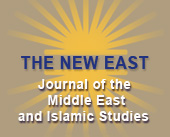The Future of Islam, the Future of the West in Islamist’s Theology
Uriah Furman
One of the basic assumptions in the study of the history of ideas is that conceptions, and sometimes even ideals, tend to change or adapt themselves in accordance with a changing realty. Indeed, research that does not take this into consideration is liable to suffer from essentialism and adopt a fixated approach that views ideology as a static collection of ideas. However, we sometimes find, as in the case before us, that a set of ideas can survive over a long period, even generations, during which there is no significant change. This mainly occurs when the bodies that shaped these ideas also continue to exist for a long time.
This essay analyzes four basic elements of the accepted worldview of fundamentalist Islam, which have existed for more than a century: there is a continuous clash of civilizations between Islam and modernism; the worldview that stems from this is abnormal and unacceptable; the desire to change the abnormal reality becomes a struggle that takes various forms; and finally, there is a clear vision of how this struggle will end, and certainty about the future of Islam and non-Islam cultures. The essay deals with the development of these concepts over several generations of Islamist thinking: from Hasan al-Banna to Ayman al-Zawahiri; from Sayyd Qutb to Abu baseer al-Tartusi.
While dealing with these issues, the essay uncovers the significant theological aspect that guides Islamist discourse, and provides an in-depth view of the origins and patterns of the ethos of "resistance." Stemming from these, it examines Islamism as a kind of Hobbesianism.

